November 7, 2022
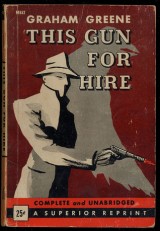 I recently had another Graham Greene Cocktail Talk here on the Spiked Punch (that one was a Comedians Cocktail Talk), and when re-reading the book that that there post focused its light upon, I got the urge to re-read some other Greenes. Does that happen to you? You read or re-read a book by an author and then just get the urge to delve more deeply into said author? Well, it does to me! It’s a bit like when you have a delicious, say, whiskey drink, and then you’re like “well, that worked out nicely, how about another!” For another in our Greene reading situation, I grabbed one of the ‘entertainments’ as he called them, as opposed to his serious stuff I suppose, This Gun for Hire. Following along the paths of a not-so-nice hired gun and a nice aspiring actor (who happens to have a fiancé who is a police detective) whose paths cross after a political assassination, well, it moves fast, draws you in, and is, well, entertaining! And has the below fun quote about whiskey, and beer!
I recently had another Graham Greene Cocktail Talk here on the Spiked Punch (that one was a Comedians Cocktail Talk), and when re-reading the book that that there post focused its light upon, I got the urge to re-read some other Greenes. Does that happen to you? You read or re-read a book by an author and then just get the urge to delve more deeply into said author? Well, it does to me! It’s a bit like when you have a delicious, say, whiskey drink, and then you’re like “well, that worked out nicely, how about another!” For another in our Greene reading situation, I grabbed one of the ‘entertainments’ as he called them, as opposed to his serious stuff I suppose, This Gun for Hire. Following along the paths of a not-so-nice hired gun and a nice aspiring actor (who happens to have a fiancé who is a police detective) whose paths cross after a political assassination, well, it moves fast, draws you in, and is, well, entertaining! And has the below fun quote about whiskey, and beer!
“Keep a bottle of whisky here, super?” the Chief Constable asked. “Do’us all good to ‘ave a drink. Had too much beer. It returns. Whisky’s better, but the wife doesn’t like the smell.”
–Graham Greene, This Gun for Hire
November 23, 2021
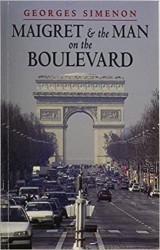 Another quote from the Chief Inspector Maigret yarn I’ve been most recently reading (as opposed to all of those I’ve read in the past: check out all the Maigret Cocktail Talks to get a view into some of them – at least don’t miss the Maigret and the Man on the Boulevard Part I Cocktail Talk, to learn more about this particular book by George Simenon), one where our main character sits down in a very serious and thinking mood at his favorite of all Parisian spots – or the one he visits the most, which is saying something, though it is right across from his office – and gives the waiter a little of the Maigret-ness so many criminal have to deal with.
Another quote from the Chief Inspector Maigret yarn I’ve been most recently reading (as opposed to all of those I’ve read in the past: check out all the Maigret Cocktail Talks to get a view into some of them – at least don’t miss the Maigret and the Man on the Boulevard Part I Cocktail Talk, to learn more about this particular book by George Simenon), one where our main character sits down in a very serious and thinking mood at his favorite of all Parisian spots – or the one he visits the most, which is saying something, though it is right across from his office – and gives the waiter a little of the Maigret-ness so many criminal have to deal with.
“What’s the Veau Marengo like?”
“Excellent, Monsieur Maigret.”
Without realizing it, he was subjecting the waiter to a look that could not have been sterner if he had been a suspect under interrogation.
“Beer, sir?”
“No. A half-bottle of claret.”
He was just being perverse. If the waiter had suggested wine, he would have ordered beer.
–George Simenon, Maigret and the Man on the Boulevard
Tags: beer, Claret, Cocktail Talk, George Simenon, Inspector Maigret, Maigret, Maigret and the Man on the Boulevard, Part II, Veau Marengo
Posted in: beer, Cocktail Talk, Wine
June 29, 2021
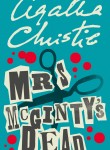 Ah, Poirot. Hercule Poirot, that is (are there other Poirots? If so, I feel for them). I know that with many books, shows, films, poems, and sculptures, some may feel a Poirot overload at times – and this isn’t even to mention the many, many, Poirot imitations and bowdlerizations. But I still love the egg-shaped Belgian, in book and movie and TV show form. Thank you Mrs. Christie! Somedays, dipping back into a Poirot yarn is just the relief a long day needs. Especially when Poirot starts hitting the sweet liqueurs (you could probably guess this), which I’ll admit also loving, probably a rarity among English speakers in his day (well, the day his adventures were set within, that is), though hopefully something not as rare today, with our lucky-for-us wider palate of bar bottle resources and consumption. Hopefully! Anyway, this is all to say, I was re-reading the classic Poirot book Mrs. McGinty’s Dead, which has it all – a murder, a perhaps wronged potential murderer, small town England townies, historical murders, more murders, and very tight patent-leather shoes. Plus: well-groomed mustaches of course! And, a wonderful listing of Poirot’s fav sweet tipples, and beer.
Ah, Poirot. Hercule Poirot, that is (are there other Poirots? If so, I feel for them). I know that with many books, shows, films, poems, and sculptures, some may feel a Poirot overload at times – and this isn’t even to mention the many, many, Poirot imitations and bowdlerizations. But I still love the egg-shaped Belgian, in book and movie and TV show form. Thank you Mrs. Christie! Somedays, dipping back into a Poirot yarn is just the relief a long day needs. Especially when Poirot starts hitting the sweet liqueurs (you could probably guess this), which I’ll admit also loving, probably a rarity among English speakers in his day (well, the day his adventures were set within, that is), though hopefully something not as rare today, with our lucky-for-us wider palate of bar bottle resources and consumption. Hopefully! Anyway, this is all to say, I was re-reading the classic Poirot book Mrs. McGinty’s Dead, which has it all – a murder, a perhaps wronged potential murderer, small town England townies, historical murders, more murders, and very tight patent-leather shoes. Plus: well-groomed mustaches of course! And, a wonderful listing of Poirot’s fav sweet tipples, and beer.
Poirot pressed his guest with refreshments. A grenadine? Crème de Menthe? Benedictine? Crème de Cacao…
At this moment George entered with a tray on which was a whisky bottle and a siphon. “Or beer if you prefer it, sir?” he murmured to the visitor.
Superintendent Spence’s large red face lightened.
“Beer for me,” he said.
Poirot was left to wonder once more at the accomplishments of George. He himself had had no idea that there was beer in the flat and it seemed incomprehensible to him that it could be preferred to a sweet liqueur.
When Spence had his foaming tankard, Poirot poured himself out a tiny glass of gleaming green crème de menthe.
–Agatha Christie, Mrs. McGinty’s Dead
Tags: Agatha Christie, beer, Benedictine, Cocktail Talk, crème de cacao, Crème de menthe, grenadine, Hercule Poirot, Mrs. McGinty’s Dead, Poirot, Whiskey
Posted in: beer, Cocktail Talk, Liqueurs, Whiskey
March 2, 2021
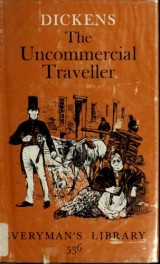 As we continue traveling with our pal Charles Dickens writing as The Uncommercial Traveller (be sure to read The Uncommercial Traveller Cocktail Talks Part I and Part II, to have a little more background on this collection of essays that isn’t perhaps read enough – oh, and be sure to see all Dickens Cocktail Talks, too), today we walk with him through London into a dining establishment that he’s very positive on, due to it’s low prices and big portions (remaining taste throughout), all focused it seems to me to be supportive of all income ranges. Great, right! Except there’s one facet that Dickens isn’t a fan of, and, really, who can blame him.
As we continue traveling with our pal Charles Dickens writing as The Uncommercial Traveller (be sure to read The Uncommercial Traveller Cocktail Talks Part I and Part II, to have a little more background on this collection of essays that isn’t perhaps read enough – oh, and be sure to see all Dickens Cocktail Talks, too), today we walk with him through London into a dining establishment that he’s very positive on, due to it’s low prices and big portions (remaining taste throughout), all focused it seems to me to be supportive of all income ranges. Great, right! Except there’s one facet that Dickens isn’t a fan of, and, really, who can blame him.
The most enthusiastic admirer of those substantials, would probably not object to occasional inconstancy in respect of pork and mutton: or, especially in cold weather, to a little innocent trifling with Irish stews, meat pies, and toads in holes. Another drawback on the Whitechapel establishment, is the absence of beer. Regarded merely as a question of policy, it is very impolitic, as having a tendency to send the working men to the public-house, where gin is reported to be sold. But, there is a much higher ground on which this absence of beer is objectionable. It expresses distrust of the working man.
— Charles Dickens, The Uncommercial Traveller
February 23, 2021
 This is going to be a long quote (as a warning – but not to push you away from reading it, cause it is awesome), so not much in the way of introduction here. For more of that, be sure to read The Uncommercial Traveller Cocktail Talk Part I. Here in Part II, we’re going to hang outside another public house, but this time with a very wonderful dog, in an essay all about London “shy neighborhoods” and the animals (and people, thought a little less) that hang out within them. Dickens from all I can tell, had a big fondness for dogs – check out the Dombey and Son Cocktail Talk all about Diogenes the dog, my favorite Dickens character, for another example. Perhaps after you read the below, which has rockets up my list of favorite Dickens quotes quite rapidly. For the whole thing, but highlighted by the phrase “an intelligence of ears and tail” which I find absolutely spot on and lovely.
This is going to be a long quote (as a warning – but not to push you away from reading it, cause it is awesome), so not much in the way of introduction here. For more of that, be sure to read The Uncommercial Traveller Cocktail Talk Part I. Here in Part II, we’re going to hang outside another public house, but this time with a very wonderful dog, in an essay all about London “shy neighborhoods” and the animals (and people, thought a little less) that hang out within them. Dickens from all I can tell, had a big fondness for dogs – check out the Dombey and Son Cocktail Talk all about Diogenes the dog, my favorite Dickens character, for another example. Perhaps after you read the below, which has rockets up my list of favorite Dickens quotes quite rapidly. For the whole thing, but highlighted by the phrase “an intelligence of ears and tail” which I find absolutely spot on and lovely.
At a small butcher’s, in a shy neighbourhood (there is no reason for suppressing the name; it is by Notting-hill, and gives upon the district called the Potteries), I know a shaggy black and white dog who keeps a drover. He is a dog of an easy disposition, and too frequently allows this drover to get drunk. On these occasions, it is the dog’s custom to sit outside the public-house, keeping his eye on a few sheep, and thinking. I have seen him with six sheep, plainly casting up in his mind how many he began with when he left the market, and at what places he has left the rest. I have seen him perplexed by not being able to account to himself for certain particular sheep. A light has gradually broken on him, he has remembered at what butcher’s he left them, and in a burst of grave satisfaction has caught a fly off his nose, and shown himself much relieved. If I could at any time have doubted the fact that it was he who kept the drover, and not the drover who kept him, it would have been abundantly proved by his way of taking undivided charge of the six sheep, when the drover came out besmeared with red ochre and beer, and gave him wrong directions, which he calmly disregarded. He has taken the sheep entirely into his own hands, has merely remarked with respectful firmness, ‘That instruction would place them under an omnibus; you had better confine your attention to yourself—you will want it all;’ and has driven his charge away, with an intelligence of ears and tail, and a knowledge of business, that has left his lout of a man very, very far behind.
— Charles Dickens, The Uncommercial Traveller
Tags: beer, Charles Dickens, Cocktail Talk, Dickens, great dogs, intelligence of ears and tail, Part II, red ochre and beer, shy neighborhoods, The Uncommercial Traveller
Posted in: beer, Charles Dickens, Cocktail Talk
February 16, 2021
 The Uncommercial Traveller by our pal Charles Dickens is not a book one hears about enough – heck, even a Dickens head like me hadn’t had it in his hands until recently. But I scored a copy, which isn’t really that hard, though said copy is like a print-to-order thing, with no, like TOC, or copyright notes, or title page, anything. Which is fine, and definitely better than no copy at all! If you don’t know (and I’ll admit, I didn’t know much until I got said copy), The Uncommercial Traveller is a collection of personal essays, or literary sketches as they say, that Dickens originally published in a journal he founded called “All the Year Round” (if anyone wants to gift me a few original copies of that, go right ahead), and really involves the main character (Dickens, that is, as far as it goes) writing about his wanderings around London, the UK, and (in a dreamy sort-of way and regular ways) Europe, including visiting the site of a famous shipwreck, strolling the city in the wee hours due to insomnia, mapping out the haunts of neighborhood dogs, visiting the town he grew up in, and more. They are all written in the Dickensian style, with wit, insights that remain relevant today, details rendered through his particular peculiar eye, and all. He stops at pubs and hotels and other watering holes, too, as he loved such, and drinks, so it makes for good Cocktail Talk-ing (oh, don’t miss all the past Charles Dickens Cocktail Talks, as there are many jolly ones). I’m not sure yet how many Uncommercial Traveller Cocktails Talks I’ll have yet, but you can bet they’ll be more! We’re going to start at one of those neighborhood public houses, one attended by theatre-goers during intermission. And while it does have drinks! It’s really an ode to the sandwich. But I love sandwiches! Especially with drinks.
The Uncommercial Traveller by our pal Charles Dickens is not a book one hears about enough – heck, even a Dickens head like me hadn’t had it in his hands until recently. But I scored a copy, which isn’t really that hard, though said copy is like a print-to-order thing, with no, like TOC, or copyright notes, or title page, anything. Which is fine, and definitely better than no copy at all! If you don’t know (and I’ll admit, I didn’t know much until I got said copy), The Uncommercial Traveller is a collection of personal essays, or literary sketches as they say, that Dickens originally published in a journal he founded called “All the Year Round” (if anyone wants to gift me a few original copies of that, go right ahead), and really involves the main character (Dickens, that is, as far as it goes) writing about his wanderings around London, the UK, and (in a dreamy sort-of way and regular ways) Europe, including visiting the site of a famous shipwreck, strolling the city in the wee hours due to insomnia, mapping out the haunts of neighborhood dogs, visiting the town he grew up in, and more. They are all written in the Dickensian style, with wit, insights that remain relevant today, details rendered through his particular peculiar eye, and all. He stops at pubs and hotels and other watering holes, too, as he loved such, and drinks, so it makes for good Cocktail Talk-ing (oh, don’t miss all the past Charles Dickens Cocktail Talks, as there are many jolly ones). I’m not sure yet how many Uncommercial Traveller Cocktails Talks I’ll have yet, but you can bet they’ll be more! We’re going to start at one of those neighborhood public houses, one attended by theatre-goers during intermission. And while it does have drinks! It’s really an ode to the sandwich. But I love sandwiches! Especially with drinks.
Between the pieces, we almost all of us went out and refreshed. Many of us went the length of drinking beer at the bar of the neighbouring public-house, some of us drank spirits, crowds of us had sandwiches and ginger-beer at the refreshment-bars established for us in the Theatre. The sandwich—as substantial as was consistent with portability, and as cheap as possible—we hailed as one of our greatest institutions. It forced its way among us at all stages of the entertainment, and we were always delighted to see it; its adaptability to the varying moods of our nature was surprising; we could never weep so comfortably as when our tears fell on our sandwich; we could never laugh so heartily as when we choked with sandwich; Virtue never looked so beautiful or Vice so deformed as when we paused, sandwich in hand, to consider what would come of that resolution of Wickedness in boots, to sever Innocence in flowered chintz from Honest Industry in striped stockings. When the curtain fell for the night, we still fell back upon sandwich, to help us through the rain and mire, and home to bed.
–Charles Dickens, The Uncommercial Traveller
Tags: bars public house, beer, Charles Dickens, Cocktail Talk, Dickens, ginger beer, Part I, sandwich, spirits, The Uncommercial Traveller
Posted in: Bars, beer, Charles Dickens, Cocktail Talk
December 29, 2020
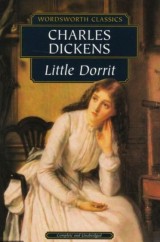 I can’t believe it’s the end of 2020 (a crappy year, as you know, with some redeeming factors), which means there have been, well, 2,020 years plus a few more years of recorded Western history (I’m not here to debate history, and realize I’m generalizing in a big way, but hey, I write about drinks), and in all those years I haven’t had a Cocktail Talk from the immortal Dicken’s classic Little Dorrit! That’s an outrage! What have I been thinking? I haven’t, obviously. While Little Dorrit isn’t my all-time favorite Dickens, it’s definitely in the middle-high range, and as I love most all Dickens books a heck of a lot, that’s saying something! Be sure to read all the Dickens Cocktail Talks to hear more. But be sure to come back, too, cause you don’t want to miss these quotes from Dickens fairly-dark novel that’s unflinching in its views of his society (which is remarkably like ours, in some sad ways), while still being wonderfully comic, character-driven, lyric, and descriptive, with layers of stories that disconnect and then connect again and characters you won’t easily forget. Dickens! And, of course, there are some drinks, as he liked drinks and pubs like few other authors. Our first Little Dorrit Cocktail Talk – and there will be more, don’t you fret – features the hero (in a way of speaking) of the book, Arthur Clennam, sitting down for dinner with a now-much-changed love from his youth, and with her father.
I can’t believe it’s the end of 2020 (a crappy year, as you know, with some redeeming factors), which means there have been, well, 2,020 years plus a few more years of recorded Western history (I’m not here to debate history, and realize I’m generalizing in a big way, but hey, I write about drinks), and in all those years I haven’t had a Cocktail Talk from the immortal Dicken’s classic Little Dorrit! That’s an outrage! What have I been thinking? I haven’t, obviously. While Little Dorrit isn’t my all-time favorite Dickens, it’s definitely in the middle-high range, and as I love most all Dickens books a heck of a lot, that’s saying something! Be sure to read all the Dickens Cocktail Talks to hear more. But be sure to come back, too, cause you don’t want to miss these quotes from Dickens fairly-dark novel that’s unflinching in its views of his society (which is remarkably like ours, in some sad ways), while still being wonderfully comic, character-driven, lyric, and descriptive, with layers of stories that disconnect and then connect again and characters you won’t easily forget. Dickens! And, of course, there are some drinks, as he liked drinks and pubs like few other authors. Our first Little Dorrit Cocktail Talk – and there will be more, don’t you fret – features the hero (in a way of speaking) of the book, Arthur Clennam, sitting down for dinner with a now-much-changed love from his youth, and with her father.
Once upon a time Clennam had sat at that table taking no heed of anything but Flora; now the principal heed he took of Flora was to observe, against his will, that she was very fond of porter, that she combined a great deal of sherry with sentiment, and that if she were a little overgrown, it was upon substantial grounds. The last of the Patriarchs had always been a mighty eater, and he disposed of an immense quantity of solid food with the benignity of a good soul who was feeding some one else.
— Charles Dickens, Little Dorrit
Tags: Arthur Clennam, Charles Dickens, Cocktail Talk, Little Dorrit, Part I, port, she combined a great deal of sherry with sentiment, sherry
Posted in: beer, Charles Dickens, Cocktail Talk, Sherry
December 8, 2020
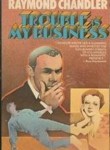 Well, it’s nearly time after a fair number of swell quotes to say so-long (for now – he’ll be back) to Raymond Chandler, with one last Cocktail Talk from a story within the collection Trouble Is My Business and Other Stories, this time “Red Wind,” which starts with the below quote that has a wind indeed in it. It’s a twisty kind of tall, beginning with that wind and a bar that’s across the street from Chandler’s PI Philip Marlowe’s apartment. Then there’s a lady, various angles, and lots of gumshoe-ing. Start it off with the below, and then read the whole story whydontcha? Oh, and also don’t miss all the other Raymond Chandler Cocktail Talks, cause you deserve to read them.
Well, it’s nearly time after a fair number of swell quotes to say so-long (for now – he’ll be back) to Raymond Chandler, with one last Cocktail Talk from a story within the collection Trouble Is My Business and Other Stories, this time “Red Wind,” which starts with the below quote that has a wind indeed in it. It’s a twisty kind of tall, beginning with that wind and a bar that’s across the street from Chandler’s PI Philip Marlowe’s apartment. Then there’s a lady, various angles, and lots of gumshoe-ing. Start it off with the below, and then read the whole story whydontcha? Oh, and also don’t miss all the other Raymond Chandler Cocktail Talks, cause you deserve to read them.
There was a desert wind blowing that night. It was one of those hot dry Santa Anas that come down through the mountain passes and curl your hair and make your nerves jump and your skin itch. On nights like that, meek little wives feel the edge of the carving knife and study their husbands’ necks. Anything can happen. You can even get a full glass of beer at a cocktail lounge.
I was getting one in a flossy new place across the street from the apartment house where I lived. It had been open about a week and it wasn’t doing any business. The kid behind the bar was in his early twenties and looked as if he had never had a drink in his life.
–Raymond Chandler, “Red Wind”
 I recently had another Graham Greene Cocktail Talk here on the Spiked Punch (that one was a Comedians Cocktail Talk), and when re-reading the book that that there post focused its light upon, I got the urge to re-read some other Greenes. Does that happen to you? You read or re-read a book by an author and then just get the urge to delve more deeply into said author? Well, it does to me! It’s a bit like when you have a delicious, say, whiskey drink, and then you’re like “well, that worked out nicely, how about another!” For another in our Greene reading situation, I grabbed one of the ‘entertainments’ as he called them, as opposed to his serious stuff I suppose, This Gun for Hire. Following along the paths of a not-so-nice hired gun and a nice aspiring actor (who happens to have a fiancé who is a police detective) whose paths cross after a political assassination, well, it moves fast, draws you in, and is, well, entertaining! And has the below fun quote about whiskey, and beer!
I recently had another Graham Greene Cocktail Talk here on the Spiked Punch (that one was a Comedians Cocktail Talk), and when re-reading the book that that there post focused its light upon, I got the urge to re-read some other Greenes. Does that happen to you? You read or re-read a book by an author and then just get the urge to delve more deeply into said author? Well, it does to me! It’s a bit like when you have a delicious, say, whiskey drink, and then you’re like “well, that worked out nicely, how about another!” For another in our Greene reading situation, I grabbed one of the ‘entertainments’ as he called them, as opposed to his serious stuff I suppose, This Gun for Hire. Following along the paths of a not-so-nice hired gun and a nice aspiring actor (who happens to have a fiancé who is a police detective) whose paths cross after a political assassination, well, it moves fast, draws you in, and is, well, entertaining! And has the below fun quote about whiskey, and beer!

























